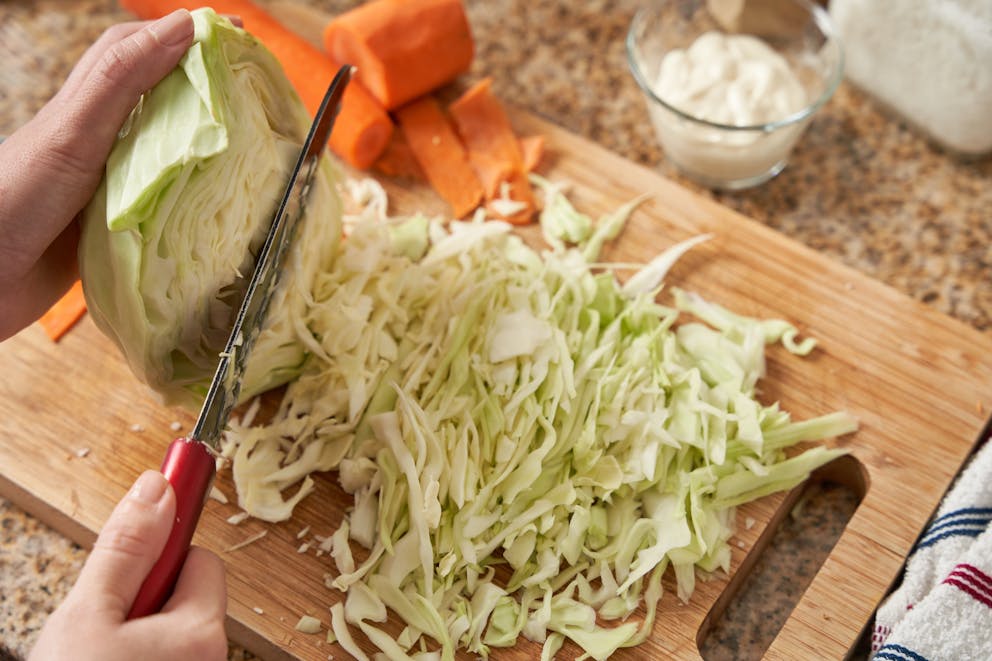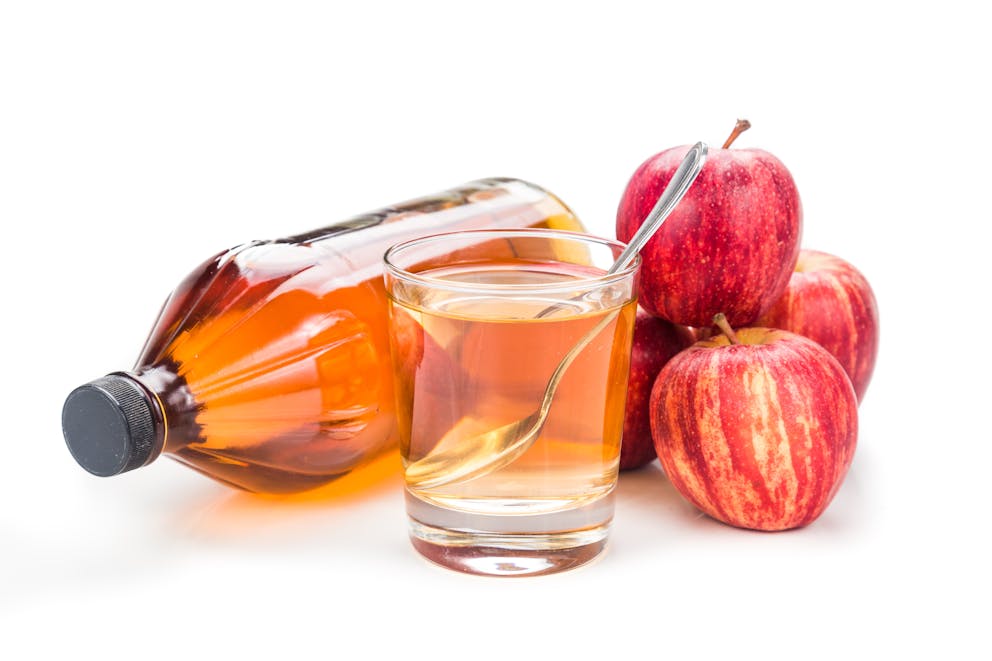Feeling Worse with Apple Cider Vinegar
Many people turn to apple cider vinegar (ACV) for digestive issues, but it's not a one-size-fits-all remedy. When dealing with gastritis and ulcers, understanding the role of ACV is crucial.
This article digs into why ACV might sometimes do more harm than good.
We'll also cover critical supplements like zinc carnosine and DGL licorice that could help manage these conditions better. Additionally, we'll explore the significance of tweaking your diet to alleviate symptoms if you're battling gastritis or stomach ulcers.
Finally, managing SIBO—a common complication—will be discussed along with preventive measures to keep your digestive health on track long-term. Get ready for actionable insights to support your gut health effectively.
Understanding Gastritis and Ulcers
Gastritis and ulcers cause much discomfort, but their treatment options can differ. This is especially true regarding natural remedies like apple cider vinegar (ACV), which might not always suit everyone.
The Role of Apple Cider Vinegar
Traditionally, ACV has been lauded for its digestive support properties. But if you find your symptoms worsening after consuming it, this could be a sign of an underlying ulcer or gastritis condition.
The acidity in ACV might exacerbate these issues instead of providing relief. Yet, this isn't to say that natural remedies are off the table for everyone. Both conditions can see improvement through similar protocols that don't involve acidifiers like ACV.
Identifying Symptoms and Causes
Distinguishing between the signs of gastritis and ulcers is crucial because they share many symptoms but have distinct causes and treatments.
Feeling worse after ingesting acidic substances such as ACV should prompt further investigation by a healthcare professional to ensure accurate diagnosis and effective management strategies explicitly tailored to your needs.
Key Supplements for Gastritis and Ulcers
Key supplements for gastritis and ulcers play a vital role in managing these conditions and promoting gut health. Probiotics help restore the balance of beneficial bacteria in the gut, while zinc supports tissue repair and immune function.
Additionally, deglycyrrhizinated licorice (DGL) may help soothe gastrointestinal discomfort and protect the stomach lining from irritation.
Zinc Carnosine's Role
Zinc carnosine, a blend of zinc and carnosine, exhibits safeguarding properties for the stomach's inner layer. Its recommended dosage stands at 50 milligrams three times daily, striking an effective balance between efficacy and safety.
This substance bolsters the stomach's safeguards, warding off aggressors that might provoke gastritis and ulcers.
The benefits of zinc carnosine extend beyond just barrier support; it also possesses antioxidant properties that help mitigate inflammation in the digestive tract.
For those seeking more information on its therapeutic effects, consider exploring PubMed for detailed studies highlighting its role in gastrointestinal health.
The Healing Power of Chlorophyll
Chlorophyll, particularly from wheatgrass juice powder, plays a significant role in nurturing the inner lining of the digestive tract. By nurturing a healing ambiance, it aids in the restoration and renewal of our inner well-being.
Plant green pigment isn’t just for photosynthesis—it acts as nature’s balm for damaged gastric tissues.
DGL Licorice as a Remedy
Deglycyrrhizinated licorice (DGL) offers another support layer for those battling gastritis or ulcers.
By chewing DGL tablets before meals, patients can experience relief from discomfort due to its soothing properties on inflamed mucous membranes within the digestive system.
Dietary Recommendations
Dietary recommendations for gastritis and ulcers focus on soothing and healing the digestive tract while minimizing irritation. A diet rich in fruits, vegetables, lean proteins, and whole grains can provide essential nutrients without aggravating symptoms.
Avoiding spicy, acidic, fried, and processed foods can help alleviate discomfort and promote digestive health.

The Importance of Cabbage
Cabbage isn't just a versatile vegetable; it's a powerhouse for gastritis and ulcers. Why? Because its natural components promote the healing of the stomach lining, making it an essential part of your diet if you're battling these conditions.
Research has illuminated that the consumption of cabbage juice notably hastens the healing process for peptic ulcers, attributing this effect to its rich glutamine levels, an indispensable amino acid for maintaining gastrointestinal wellness.
But there's more to managing these conditions than just adding cabbage to your plate.
Taking short breaks from eating and embracing particular eating patterns, such as a meat-heavy diet, could be vital in tackling root problems like SIBO that aggravate conditions related to stomach inflammation and sores.
While fasting gives your digestive system a much-needed break, allowing inflammation to subside, following a carnivore diet might help eliminate SIBO by restricting the carbohydrates that feed harmful bacteria.
Addressing SIBO in Gastritis and Ulcer Patients
Addressing small intestinal bacterial overgrowth (SIBO) in gastritis and ulcer patients requires a comprehensive approach.
Dietary modifications, such as reducing fermentable carbohydrates and following a low-FODMAP diet, may help alleviate symptoms associated with SIBO. Additionally, antibiotics and probiotics may be prescribed to rebalance gut flora and manage SIBO effectively.
Understanding SIBO's Impact
SIBO, or Small Intestinal Bacterial Overgrowth, complicates conditions like gastritis and ulcers by causing uncomfortable bloating and significantly interfering with nutrient absorption.
The surplus of bacteria feasts on the nourishment intended for your system, precipitating nutritional shortages. Avoiding acidifiers such as apple cider vinegar (ACV) is crucial for those managing these conditions.
Although ACV is popularly used for digestion support, its acidic nature can exacerbate gastritis symptoms and ulcers. Instead, focusing on a diet that limits fermentable carbohydrates can help manage SIBO without aggravating underlying issues.
Navigating the delicate balance between managing SIBO and safeguarding gastric wellness highlights the need for customized eating plans.
For instance, adopting a low-FODMAP diet has been shown to reduce symptoms related to both SIBO and gastrointestinal disorders like ulcers or gastritis.
It's not just about what you eat; it’s also about ensuring your gut flora remains balanced to prevent complications.
Preventive Measures and Long-Term Management
Preventive measures and long-term management strategies for gastritis and ulcers involve lifestyle modifications and regular monitoring.
Maintaining a healthy diet, managing stress levels, and avoiding tobacco and excessive alcohol consumption can help prevent flare-ups.
Regular medical check-ups and adherence to prescribed medications can aid in long-term management and minimize the risk of complications.
The Benefits of Keto and Intermittent Fasting
Adopting a ketogenic diet alongside intermittent fasting has shown promise in preventing the recurrence of gastritis or ulcers. This combination reduces inflammation, improves gut health, and stabilizes blood sugar levels.
A healthy keto diet focuses on high-fat, moderate-protein, and low-carbohydrate foods, which can help minimize stomach irritation. Intermittent fasting further enhances these benefits by giving the digestive system regular breaks from processing food.
Together, they offer a powerful strategy for long-term gastric health maintenance.
Probiotics for Gastric Health
Harnessing probiotics plays a pivotal role in alleviating issues tied to gastritis and ulcers, an influence that's far from trivial. Helpful microorganisms maintain a harmonious intestinal flora, which is essential for optimal digestive health.
Adding foods teeming with probiotics, such as yogurt or supplements, could majorly alleviate the discomfort of gastritis and ulcers. They enhance the mucosal lining protection against irritants while promoting healing processes within the gastrointestinal tract.

Assessing Safety: Apple Cider Vinegar vs White Vinegar for Gastritis and Ulcers
When considering the safety of apple cider vinegar for gastritis and ulcers, it's essential to distinguish between apple cider vinegar and white vinegar.
While apple cider vinegar is often touted for its potential health benefits, including aiding digestion, white vinegar is more acidic and may exacerbate stomach issues.
Individuals with gastritis or ulcers should consult a healthcare professional before incorporating apple cider vinegar into their diet to ensure it won't worsen their condition.
Additionally, moderation is vital, as excessive consumption of any acidic substance can irritate the stomach lining.
Conclusion
So, diving into apple cider vinegar for gastritis and ulcers revealed some eye-openers. One key takeaway? It's not the cure-all for everyone.
ACV might fan the flames, especially if you've got an ulcer or gastritis.
Then, we discovered zinc carnosine and DGL licorice. These aren't your average supplements; they pack a punch in soothing those gut issues.
Diet tweaks came next on our list. Cabbage isn’t just another leafy green but a superhero for your stomach lining.
Tackling SIBO was another critical step—knowing how it plays with digestion made all the difference in managing symptoms effectively.
Last up, prevention is always better than cure. A mix of keto, intermittent fasting, and probiotics could be your shield against future flare-ups.
In essence, ACV needs cautionary use for gastritis and ulcers. But there’s hope with the right supplements and diet changes—your gut will thank you later!
Previous blog
Swollen Face and Puffy Eyes An Easy FixNext blog
The 10 Benefits of FiberTags

Popular
08/21/2024
53.6K views
02/23/2025
45.4K views
11/18/2024
270.1K views
03/18/2024
11/21/2022




